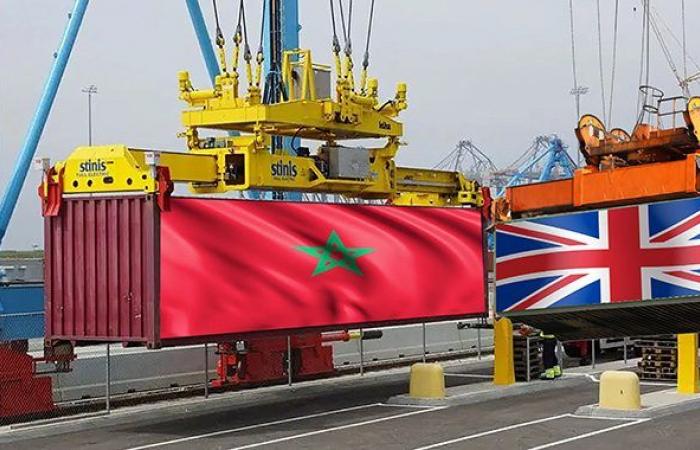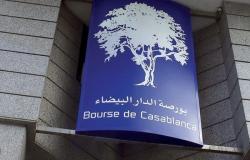They propose adjustments to be incorporated into bilateral or multilateral agreements, such as the WTO agreement on electronic commerce
Commerce: It seems that the association agreement between Morocco and the United Kingdom pushes both parties to explore new perspectives in order to densify economic and commercial relations. The first avenues are being studied. The details.
The United Kingdom is making eyes at its partners in Morocco. It seems that British officials want to go further than an association agreement but the path is still at the beginning. In this sense, the British Chamber of Commerce for Morocco recently organized a webinar under the theme “Morocco-United Kingdom Trade and Association Agreement: What opportunities for 2030”.
The event was attended by around a hundred members of the Chamber, representatives of the public sector and private companies. The webinar was an opportunity to take stock of commercial relations between the United Kingdom and Morocco. A panel of experts in several fields took the floor to answer our questions. These are, in this case, William Bain, head of trade policy at the BCC, Najib Benamour, secretary general of the Moroccan Institute of Strategic Intelligence, and Sofia Akhtar, head of trade policy and Market Access – Department of Business and Commerce.
A key priority is reducing trade barriers with its strategic markets, including Morocco.
Mr. Bain recalled that the continuity agreement between the United Kingdom and Morocco has enabled a significant increase in bilateral trade, which now reaches £3.8 billion per year. This growth is accompanied by a diversification of goods and services exchanged, testifying to the solidity and dynamism of this relationship. “We have a strong relationship that we want to strengthen, particularly in strategic areas such as foreign direct investment and digital trade,” Mr Bain said. “Digital trade, in particular, represents a major opportunity to improve the fluidity of exchanges of goods and services between our two countries. » Furthermore, Mr. Bain indicated that the United Kingdom is currently in consultation on its trade strategy.
Priority
A key priority is reducing trade barriers with its strategic markets, including Morocco. “We are exploring concrete ways to improve customs procedures to reduce port delays and costs, as well as strengthen cooperation on technical regulations,” he said. These adjustments could be incorporated into bilateral or multilateral agreements, such as the WTO agreement on electronic commerce. He also highlighted the importance of aligning with the growing dynamics in Africa, notably through the African Continental Free Trade Area, which reflects increased ambition and confidence in trade in services. “This potential must be integrated into our commercial relations with Morocco,” said Mr. Bain. Finally, Mr. Bain highlighted the significant potential for infrastructure investments. “Current levels of inward and outward foreign direct investment are good, but there is significant room for improvement. Many UK companies are keen to invest in high quality, stable infrastructure projects in countries like Morocco, with which we have had a mutually beneficial relationship for decades,” he said.
The review of agricultural tariffs, launched in 2023, aims to further liberalize trade in agricultural products and remove non-tariff barriers in both directions.
“Morocco is today in the UK’s top 50 trading partners, and we see a promising future to further deepen and diversify our trade,” concluded Mr. Bain. Asked about the main recommendations of the Policy Paper published by the Moroccan Institute of Strategic Intelligence (IMIS), Najib Benamour highlighted several axes, notably the diversification of sectors of cooperation (going beyond traditional sectors such as agriculture and infrastructure to include technology, renewable energy and education); optimization of logistics chains (simplifying customs processes and reducing delivery times); encouraging cross-investments (creating innovative financial mechanisms and strengthening the business climate). Finally, Mr. Benamour stressed that a comprehensive free trade agreement would offer significant benefits for Moroccan and British businesses. It would facilitate expanded access for Moroccan companies to the British market, provided they respect international standards, while positioning Morocco as a strategic platform for British companies wishing to access African markets. In addition, the reduction of tariff and non-tariff barriers would strengthen the solvency of companies, thus improving their liquidity and their investment capacity.
A partnership
Finally, Sofia Akhtar highlighted the rich history and growing potential of trade relations between the United Kingdom and Morocco. “The ties between our two Kingdoms span centuries, since the signing of the first Anglo-Moroccan treaty in 1625. Today, these solid historical foundations support flourishing economic cooperation,” said Ms. Akhtar. Among recent initiatives, the revision of agricultural tariffs, launched in 2023, aims to further liberalize trade in agricultural products and remove non-tariff barriers, which will strengthen mutual access of agricultural products to markets. Ms. Akhtar also highlighted priority sectors for the bilateral partnership, including renewable energy, education, infrastructure and digital technologies. She highlighted the launch of the Moroccan campus of Centry University in Casablanca and the opportunities offered by large-scale projects, such as investments linked to the 2030 World Cup and Morocco’s energy transition initiatives, including the objective is to produce 52% of its electricity from renewable energies by 2030.
“UK companies are already working with Moroccan partners in key areas, such as green hydrogen and clean technology. This cooperation demonstrates the immense potential of our partnership to respond to the challenges of today and tomorrow,” she said. In conclusion, Ms. Akhtar recalled that the United Kingdom’s industrial strategy, focused on sustainable growth and innovation, provides an enabling framework to strengthen and modernize this strategic partnership. This webinar demonstrated the shared ambition of the two countries to deepen their economic relations and explore new and strategic opportunities for the years to come.
This is the title of the box
Accord
Advice.
It was in December 2021 that Morocco and the United Kingdom held the first session of their Association Council in London to deepen their economic cooperation. On this occasion, the two countries expressed their common ambition to develop their trade. The two Kingdoms have marked their aspiration to strengthen their economic relations by encouraging British companies to study the possibilities of investing in Morocco in various sectors, particularly taking into account the Kingdom’s access to other emerging markets.
The Subcommittee will explore opportunities to deepen this relationship and increase bilateral trade and investment, paying particular attention to ensuring that the Association Agreement is implemented as effectively as possible. Officials from both sides took the opportunity to recall the history of friendly and mutually beneficial relations of the two countries. Welcoming the 300th anniversary of the signing of the first commercial treaty between the two countries, on January 23, 1721 in Fez, they reaffirmed their vision of a bilateral strategic partnership to deepen their economic and security relations, strengthen their cultural ties, support their respective ambitious contributions in the fight against climate change and helping each other for a better post-pandemic recovery.
State of play
Exchanges
The continuity agreement between the United Kingdom and Morocco has enabled a significant increase in bilateral trade which has now reached £3.8 billion per year.
Top 50
Morocco is today in the top 50 of the United Kingdom’s trading partners. But British officials say they are going further, even speaking of a promising future to deepen and diversify trade even further.
History
The links between the two Kingdoms extend over several centuries, since the signing of the first Anglo-Moroccan treaty in 1625.






